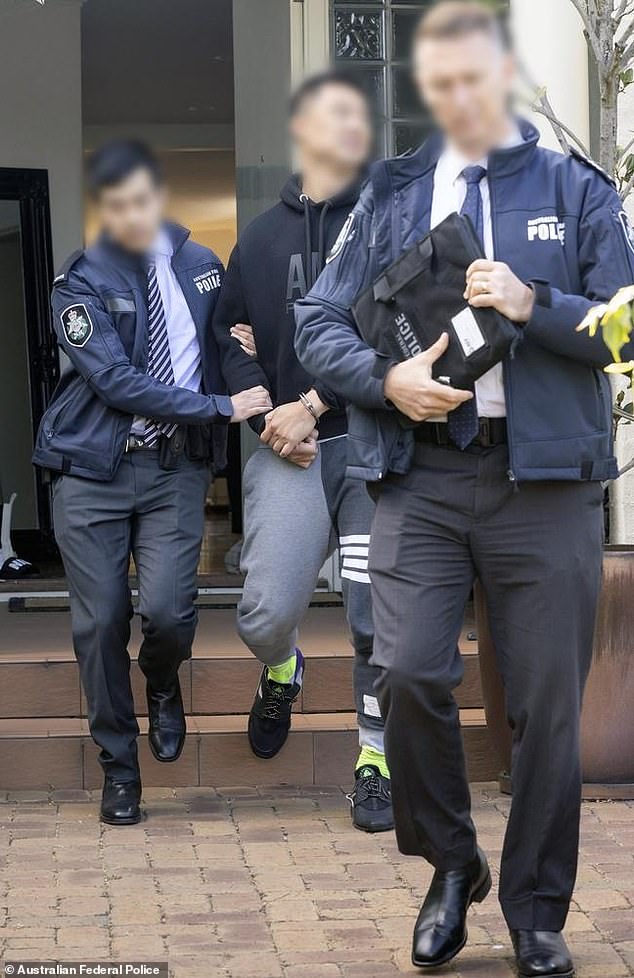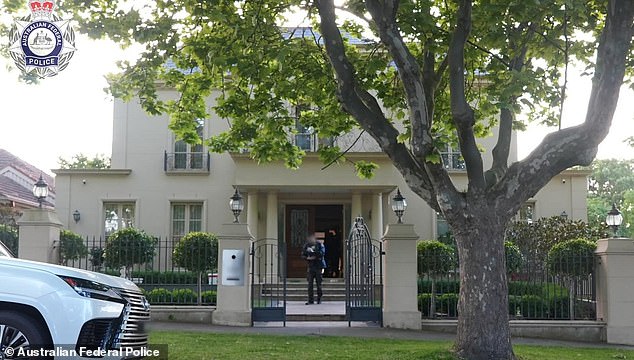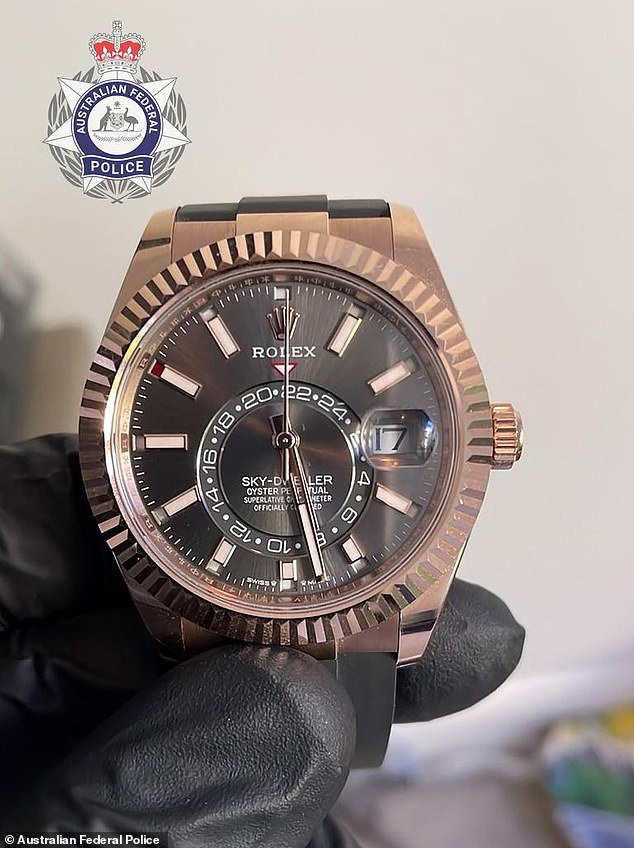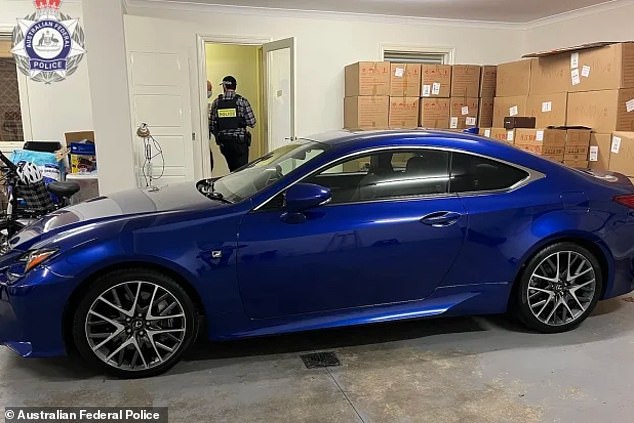Inside the alleged $10BILLION money laundering scheme by the mysterious Long River gang – and how Aussie cops brought down the Chinese syndicate
- Money laundering gang arrested by police
- Chinese syndicate ‘moved $10 billion’
A highly sophisticated gang of Chinese money launderers who ‘hid in plain sight’ while allegedly making $10 billion in three years has been busted by police.
The Changjiang Currency Exchange, known to criminals as the Long River Syndicate, is alleged by police to be a front to wash criminals’ dirty money and move it abroad.
Legitimate storefronts were used to hide the proceeds of organized crime groups dealing in drugs, illegal tobacco and fraud.
In addition to complex money laundering, it is also said to have functioned as a one-stop shop for organized criminals, teaching them how to set up a fake paper trail to evade detection by authorities.
The network, which had 12 centers across Australia, has been dismantled by the Australian Federal Police (AFP) who arrested seven alleged ringleaders in Melbourne’s eastern suburbs on Wednesday.
The Changjiang Currency Exchange (pictured), known to criminals as the Long River Syndicate, is alleged by police to be a front to wash criminals’ dirty money and move it abroad

Police raided 20 properties in Sydney, Melbourne, Brisbane, Adelaide and Perth
The four Chinese nationals and three Australian nationals are accused of laundering almost $230 million in dirty money – although the real figure is believed to be much higher.
They allegedly used the proceeds to buy lavish properties worth $10 million, Rolex watches worth $94,000 and Mercedes SUVs worth $400,000.
It is alleged that they even had plans to develop a suburb near Sydney’s second airport to launder even more money.
Police raided a total of 20 properties in Sydney, Melbourne, Brisbane, Adelaide and Perth.
AFP deputy commissioner Stephen Dametto said the Long River syndicate had become “one of the largest independent remitters in the country.”
“The reason why this investigation was so unique and complex was that this alleged syndicate operated in plain sight with gleaming storefronts across the country – it did not operate in the shadows like other money laundering organizations,” he said.
More than forty AFP officers worked alongside five forensic accountants and undercover officers on the fourteen-month operation.
The syndicate came to the attention of AFP officials when it opened new storefronts in Sydney’s CBD during the lockdown, while others in the area closed.

The four Chinese nationals and three Australian nationals are accused of laundering nearly $230 million in dirty money and using the proceeds to buy lavish $10 million properties (above), $94,000 Rolex watches (below) and $400,000 Mercedes SUVs .


Leaders also spent their alleged ill-gotten gains on luxury cars (pictured)
“It was just a gut feeling, it didn’t feel right,” AFP deputy commissioner Stephen Dametto told the newspaper.
‘During COVID-19, AFP members still came into work, and although most of Sydney was a ghost town, alarm bells went off for our money laundering investigators when they noticed Changjiang Currency Exchange operating two new storefronts in the heart of Sydney.
“Many international students and tourists had returned home, and there was no clear business case for expanding the Changjiang Currency Exchange.”
The currency exchange website still claims that it has everything in order despite the police arrest.
“Changjiang is a legitimate operating company approved by the Commonwealth of Australia, and the financial registration number for the Financial Transactions Report and Analysis Center (AUSTRAC) in the Australian capital is 100-572684,” the website claims.
‘We are registered with AUSTRAC on the Remittance Sector Register and are subject to obligations under the Anti-Money Laundering and Counter-Terrorism Financing Act 2006. You can check our registration status on the AUSTRAC website.’
